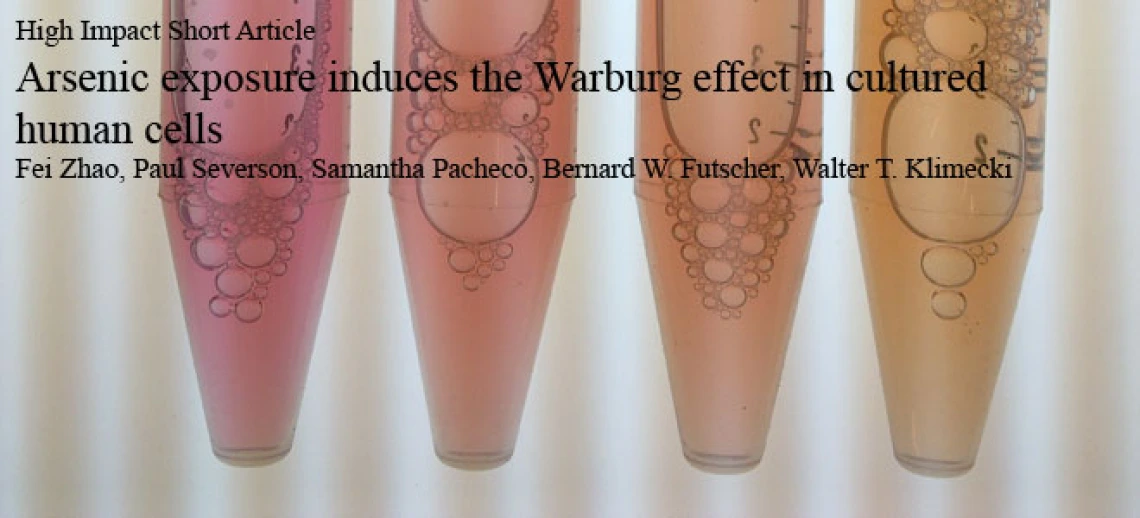UA SRP Pub Shows Impact of Arsenic on Fundamental Cell Metabolism

When Fei Zhao and Paul Severson, University of Arizona Superfund Research Program (UA SRP) trainees, were discussing their doctoral projects, they realized that they had both seen media acidification in different cell types exposed to arsenic. This brought the research groups of their mentors, Dr. Bernie Futscher (Project 2) and Dr. Walt Klimecki (Project 4), into a collaboration to investigate the phenomenon. The result is a joint publication, a High Impact-Short Article in the journal Toxicology and Applied Pharmacology, in which they demonstrate that arsenic induces a perturbation of cellular energetics in cultured human cells. Dr. Klimecki adds, “We always emphasize to our trainees that it is the casual interactions that sometimes result in an unexpected “Aha!” moment—Fei and Paul experienced a great example of that.”
Starting with the initial observation that cultured cells exposed to arsenic acidified their media more rapidly than control cells, the team set out to find out why. They demonstrated increased lactate levels in response to arsenic in a variety of human cell types, and showed that this was due to glycolysis. They found that a number of genes in the glycolytic pathway were up-regulated in response to arsenic, possibly through the induction of master regulator HIF-1. The alteration of energy production from oxidative phosphorylation to aerobic glycolysis (also known as the “Warburg effect”) represents a fundamental perturbation caused by arsenic that could underlie some of its other adverse effects.
Lead study author Dr. Klimecki sees the value of a reductionist approach to arsenic toxicology, and is looking for how changes in basic cellular pathways could explain how arsenic exposure causes such a diversity of diseases, from cancer, to atherosclerosis, to diabetes. Impacting a fundamental process such as energy metabolism might just be the mechanism that sets the stage for a variety of diseases. “It turns out that high school biochemistry is still important!” Klimecki says. “Metabolism is a hot topic in science right now, and we see a clear link between its disruption and arsenic exposure.”
Congratulations on a great discovery!

